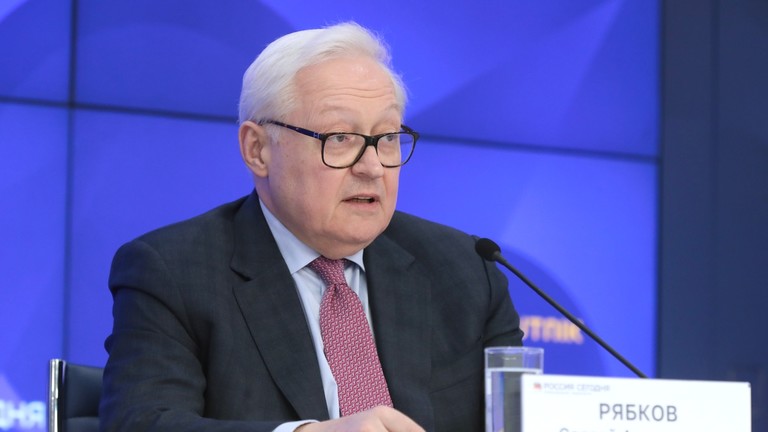©Sputnik/Vitaliy Belousov
The US and some of its allies apparently heeded a signal from Russia that prevented an escalatory spiral, Russian Deputy Foreign Minister Sergey Ryabkov has said.
In an interview with Russia-1 aired on Sunday, Ryabkov offered his assessment of two phone calls between Russian Defense Minister Andrey Belousov and Pentagon chief Lloyd Austin, which took place on June 25 and July 12.
The Russian Defense Ministry said that the July call focused on “preventing security threats and reducing the risk of potential escalation.” The previous call was dedicated to “the exchange of views on the situation around Ukraine,” it said. Meanwhile, US officials have said that both conversations revolved around the importance of maintaining contacts amid the Ukraine conflict.
Ryabkov noted that “some signs indicate that the signal that was sent by the Russian side to Washington – and I believe not only to Washington, but also to some other capitals controlled by it – has reached them. We have avoided a new cycle of escalation.”
The senior diplomat also pointed out that while the Doomsday Clock – a symbolic representation of the likelihood of global catastrophe, primarily all-out nuclear war – is set at around two minutes to midnight, this does not mean that escalation is inevitable. “But we must approach what is happening with full responsibility. The military needs to keep its powder dry because very different scenarios are possible,” he remarked.
The New York Times reported last week, citing sources, that it was Belousov who called Austin in July to “relay a warning” regarding “a Ukrainian covert operation in the works against Russia that they believed had the Americans’ blessing.” The outlet claimed that the overture surprised Washington, which was unaware of any plan and subsequently told Kiev to abort it. Details of the alleged operation remain unclear.
This came after in late May Russian Senator Dmitry Rogozin said that a Ukrainian attack – reportedly involving drones – had targeted one of the country’s key early warning systems. While both Rogozin and the Austrian military suggested that the raid was sanctioned by the US, an unnamed American official told the Washington Post that his country was “concerned” by the attacks, noting that “Russia could perceive its deterrent capabilities being targeted.” He added that “these sites have not been involved in supporting Russia’s war against Ukraine.”
Senior diplomat rules out unilateral concessions from Russia to resolve Ukrainian conflict
Russia will not make unilateral concessions to the West to settle the Ukrainian conflict, Deputy Foreign Minister Sergey Ryabkov told Rossiya 1 TV channel.
"The time of Moscow’s unilateral concessions is irrevocably over. Never in the future, even in the best-case scenario in our relations with NATO, the European Union, which is hard to imagine now, but even in these situations, there will be no unilateral concessions from our side to the West," the diplomat said.
"There will be no handouts, gifts, concessions or other gestures to appease Washington. If they try again to impose on us something unilaterally beneficial to them, there will be no agreements. That's the only way," Ryabkov stressed.
Ryabkov noted that some things "worked out with the West recently, especially on certain humanitarian issues, but this does not change the overall picture".
Russia may deploy nuclear missiles in response to Western actions — senior diplomat
The moment may come when Russia will need to deploy nuclear missiles in response to Western actions, Deputy Foreign Minister Sergey Ryabkov told Rossiya 1 TV channel.
"I confirm - if the Supreme Commander-in-Chief [of the Russian Armed Forces Vladimir Putin], if our military says that we need special munitions on certain carriers, then it will be done. But they must make this decision based on a combination of factors. I do not rule out that the moment may come when it will be needed," he said.
On July 10, the White House press service reported that the United States would begin deploying new longer-range weapons on German territory starting in 2026 than those currently deployed in Europe. On July 28, Russian President Vladimir Putin warned Washington that Moscow would stop implementing its unilateral moratorium on the deployment of medium-and shorter-range strike weapons if US long-range missiles appeared in Germany.


No comments:
Post a Comment